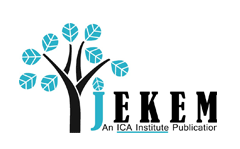Abstract
This article juxtaposes the lived experiences of two educators newly immersed in very different work environments. One of the educators, one coming from a British education background, looks at the anomalies of communication, work practice, and student expectations at a university located in the southern United States. The second educator, working in a K-12 school system on an American-Indian reservation in Arizona, looks at the challenges of NCLB, ELL, curricula, assessment methods, dropout rates, and funding. Upon examination of the issues of a quality and fair education for American Indians, it becomes clear that teachers have to bring an existential-phenomenological perspective. The wide-ranging conversations articulate the necessity for educators to develop a practical anthropology of practice of their work environment and culture.
DOI
10.7885/1946-651X.1044
